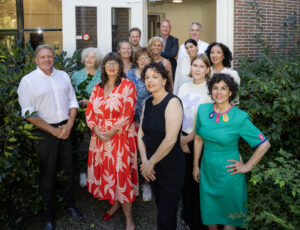On Thursday, 17 March 2011 at 11.00, Helen Creese, Fellow 2010/11, will hold a seminar in NIAS’s Lecture Room about the Balinese poem The Destruction of the World (Bhuwanawinasa).
The Destruction of the World (Bhuwanawinasa) is a Balinese gaguritan poem that deals with the final Dutch military conquest of south Bali between 1906 and 1908. Composed by a leading high caste brahmana intellectual and poet, Pedanda Ngurah from Blayu in Tabanan, the poem focuses on the violent and dramatic end to the independence of the last of the major kingdoms of Bali, Badung and Klungkung.
The Dutch conquest of Bali had begun in 1846 but, in spite of a series of military campaigns that had brought the northern and eastern parts of the island under Dutch control, at the turn of the twentieth century the kingdoms of south Bali still fiercely held onto their independence. In 1906, Governor General Van Heutsz, eager to tidy up the colonial map, finally lost patience with the seeming recalcitrance of these rulers and the pace of negotiations and gave the order for a final, military solution. In what is known in Balinese as puputan [finishing], the traditional rulers of first Badung (on 20 September 1906) and then Klungkung (on 28 April 1908), together with hundreds of their followers – men, women and children – walked directly into the Dutch military lines and fell in a hail of bullets and cannon fire. With this, the entire island of Bali formally became part of the Dutch East Indies.
In official colonial records, military reports and other accounts published in newspapers and journals, the conquest of Bali was lauded as both a heroic and a moral victory. Pedanda Ngurah’s poignantly titled account, The Destruction of the World, on the other hand, provides a distinctive Balinese perspective on these events. One of the few surviving contemporaneous Balinese accounts of this period, the poem thus provides insights into indigenous understandings of the political and historical milieu that made possible the overthrow of the Balinese world order and the ways in which pre-colonial indigenous forms of knowledge, power and politics were subsumed under colonial administrative practices and administrative reforms.



